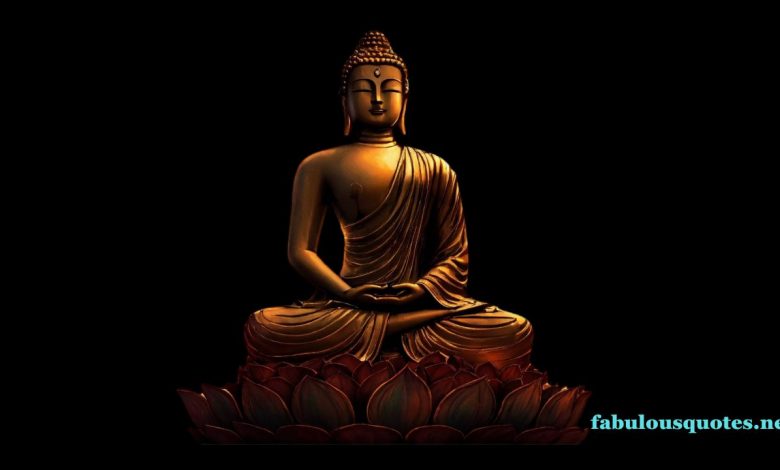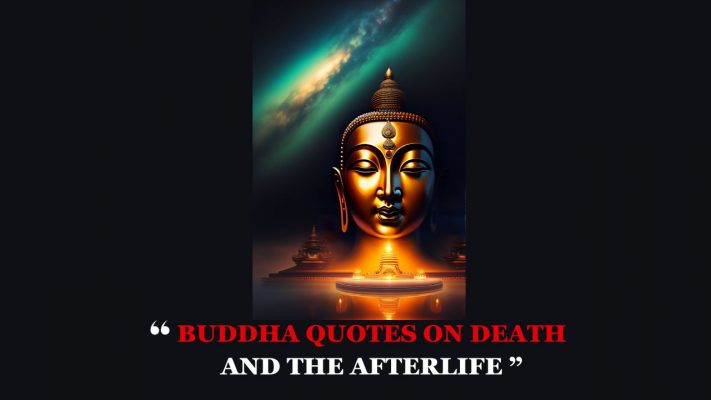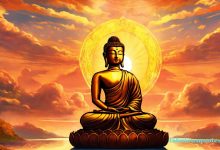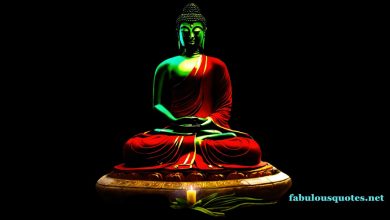
Buddha quotes on death and the Afterlife
In the profound and serene realm of Buddhist philosophy, “Buddha Quotes on Death and the Afterlife” offers a contemplative exploration of the inevitable journey from life to death. This collection, featured on fabulousquotes.net, delves into the Buddha’s timeless wisdom, addressing the profound mysteries of death and what lies beyond. It serves as a guide for understanding and accepting the natural cycle of life and death, encouraging mindfulness and inner peace. These quotes reflect the Buddha’s teachings on impermanence, the nature of existence, and the pursuit of enlightenment. As we navigate through our own life experiences, these insightful words provide a source of comfort and a deeper understanding of the transition from the physical world to the spiritual realm.

Table of Contents,
Buddha quotes on death
Buddha’s teachings on death are profound and thought-provoking, offering a unique perspective on the nature of life and the inevitability of death. Here are some key quotes attributed to Buddha quotes on death:
“Life is uncertain; death is certain.”
“Death is like a shadow that never leaves.”
“To understand everything is to forgive everything.”
“Understanding the impermanence of life brings true serenity.”
“Just as the footprints of all beings are enveloped by the footprint of the elephant, so are all worldly practices enveloped by the awareness of death.”
“One who sees impermanence understands non-self; understanding non-self, one attains enlightenment beyond death.”
“Like a city built of sand in a dream, death reveals the illusory nature of worldly things.”
“In contemplating the transient nature of life, one finds the path to peace.”
“The wise understand the inevitability of death, and in this understanding, they find their greatest security.”
“In the end, these things matter most: How well did you love? How fully did you live? How deeply did you let go?”

Buddha Quotes on the Afterlife
Cycle of Rebirth: “Just as a candle cannot burn without fire, men cannot live without a spiritual life.” This quote reflects the Buddhist belief in the cycle of rebirth and the importance of spiritual life in influencing one’s future existence.
Karma and Rebirth: “Your present self is a reflection of your past actions. Your future self will be shaped by your actions today.” This concept highlights the belief that one’s current deeds impact the form and nature of their future rebirths and existences.
Escape from the Cycle of Rebirth: “Attachment is the source of all suffering.” The fundamental aim in Buddhism is to break free from the continuous cycle of rebirth, known as samsara. This liberation is achieved by transcending attachment, desire, and ignorance, guiding one towards the state of Nirvana, where the cycle of rebirth and associated suffering ceases.
Impermanence and Continuity: “This existence of ours is as transient as autumn clouds. To watch the birth and death of beings is like looking at the movements of a dance.” This reflects the transient nature of life and the continuity of the cycle of life and death.
Mindfulness of Death: “Death is the mirror in which the true meaning of life is reflected.” This quote highlights the importance of understanding and reflecting on the nature of death as a means to gain insight into life.
Non-Self and the Afterlife: “In the sky, there is no distinction of east and west; people create distinctions out of their own minds and then believe them to be true.” This could be interpreted as a reference to the concept of non-self (anatta) and how it relates to the afterlife, suggesting that distinctions we make about existence may not hold true in the ultimate reality.
Nirvana After Life: “Nirvana represents not the extinguishing of the flame in the sense of termination, but rather as if the flame is no longer needed because the dawn has arrived.” This illustrates that Nirvana is frequently misinterpreted as mere extinction, whereas in reality, it symbolizes an elevated state of being that transcends the ongoing cycle of birth and death.
Watch video Buddha quotes on death and the Afterlife
What Are The Benefits Of Reading These Buddha Quotes?
Reading Buddha’s quotes, especially those on death and the afterlife, can provide several significant benefits:
- Mindfulness and Present Moment Awareness: Buddha’s teachings often emphasize living in the present. His quotes can inspire mindfulness, helping individuals to appreciate and fully engage with the current moment, thereby enhancing the quality of daily life.
- Coping with Grief and Loss: Quotes on death can offer comfort and perspective during times of grief. They provide a philosophical understanding of death as a natural part of life, which can be particularly soothing for those dealing with loss.
- Spiritual Growth and Enlightenment: Buddha’s insights encourage deep introspection and spiritual development. Reading these quotes can guide individuals on a path to greater self-awareness and understanding of life’s deeper truths.
- Acceptance of Life’s Impermanence: Understanding and accepting the impermanence of life is a central theme in Buddhism. These quotes can help in coming to terms with the transient nature of existence, reducing fear and anxiety about change and loss.
- Emotional Balance and Inner Peace: Buddha’s teachings on detachment, compassion, and understanding the nature of suffering can lead to greater emotional stability and inner peace, helping individuals to navigate life’s ups and downs more gracefully.
- Enhanced Compassion and Empathy: By understanding the universal nature of suffering and death, individuals may develop greater empathy and compassion towards others, fostering a sense of connectedness and community.
- Philosophical Insight and Wisdom: Buddha’s quotes provide profound philosophical insights, offering a unique lens through which to view life and death, enriching one’s personal philosophy and worldview.
- Guidance in Ethical Living: His teachings often encompass ethical living and moral considerations, guiding individuals towards actions and thoughts that promote harmony, balance, and peace both within themselves and in their interactions with others.
In conclusion, “Buddha Quotes on Death and the Afterlife” offer profound insights into the transient nature of life and the eternal journey of the soul. These teachings, encapsulated in Buddha quotes on death, encourage a deeper understanding of life’s impermanence, guiding us towards acceptance, mindfulness, and spiritual growth. They remind us that in comprehending death, we learn to live more meaningfully. Embracing these timeless wisdoms can lead to a serene acceptance of life’s cycle and a more enlightened approach to our existence, both in the present and beyond.


